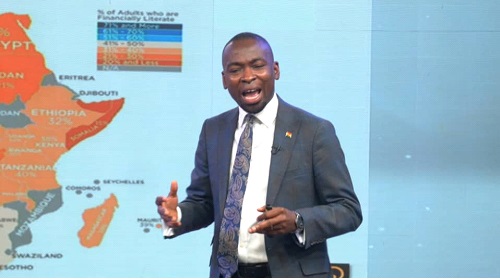Richmond Kwame Frimpong
FINANCIAL LITERACY Foundation (FLF) Africa, yesterday, launched its Financial Literacy for Coronavirus Alleviation (FLICA) across the continent.
Through FLICA, FLF Africa said it expected to provide financial literacy to the formal and informal sectors on how to handle the economic and financial hardships arising from the Covid-19 pandemic for financial wellness.
Richmond Kwame Frimpong, Executive Director of FLFA, speaking on the project at the launch, said as part of his outfit’s strategic goal to reduce extreme poverty in sub-Saharan Africa, FLICA was poised to help achieve four critical objectives.
These included educating individuals on personal financial prudence to mitigate financial crises emanating from reduced incomes, sudden job losses, and increased health cost due to the Covid-19 pandemic; assisting in closing the financial inclusion gap and helping low income earners as well as MSMEs (which constituted an important source of revenue for poor households) to achieve financial wellness, access available stimulus packages, make the most of their cash flows, tax returns, savings, credit, investments, mortgages, insurance and pensions.
Also, the organization is bent on averting the risk of making ineffective financial decisions, increasing debt and becoming victims of abusive financial practices and potentially strengthening the efficiency of financial markets in Africa.
“This continental project is geared towards all the 46 countries in sub-Saharan Africa and aims to achieve financial independence for eight out of every 10 individuals by 2030. As a deliberate strategy, our informal sector reach will cover the mass rural (farmers, fisher folk and deprived communities) and mass urban (market women, street hawkers, traders, retail sellers, etc.). The formal sector will also reach workers in the private, public, social sectors (mass, middle class and high net worth), pensioners, entrepreneurs and students across primary, secondary, tertiary, vocational and technical levels.
Mr. Frimpong continued, “Our IES approach will inform, engage and support people through practical and impartial education to build their financial awareness and encourage informed money decisions for their financial wellbeing especially in these hard economic times of Covid-19.”
This strategic approach will address attitudinal and behavioural barriers to FLFA’s goal of financial wellness through public education (audio, visual, online and on-air channels with resource materials) in both official and local country languages. It will also engage governments in addressing structural barriers to achieving long-term continental improvements in institutionalizing financial literacy.
A business desk report


